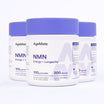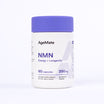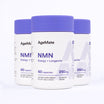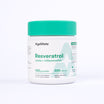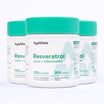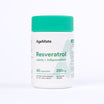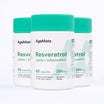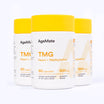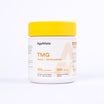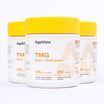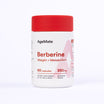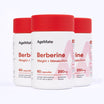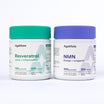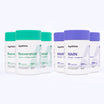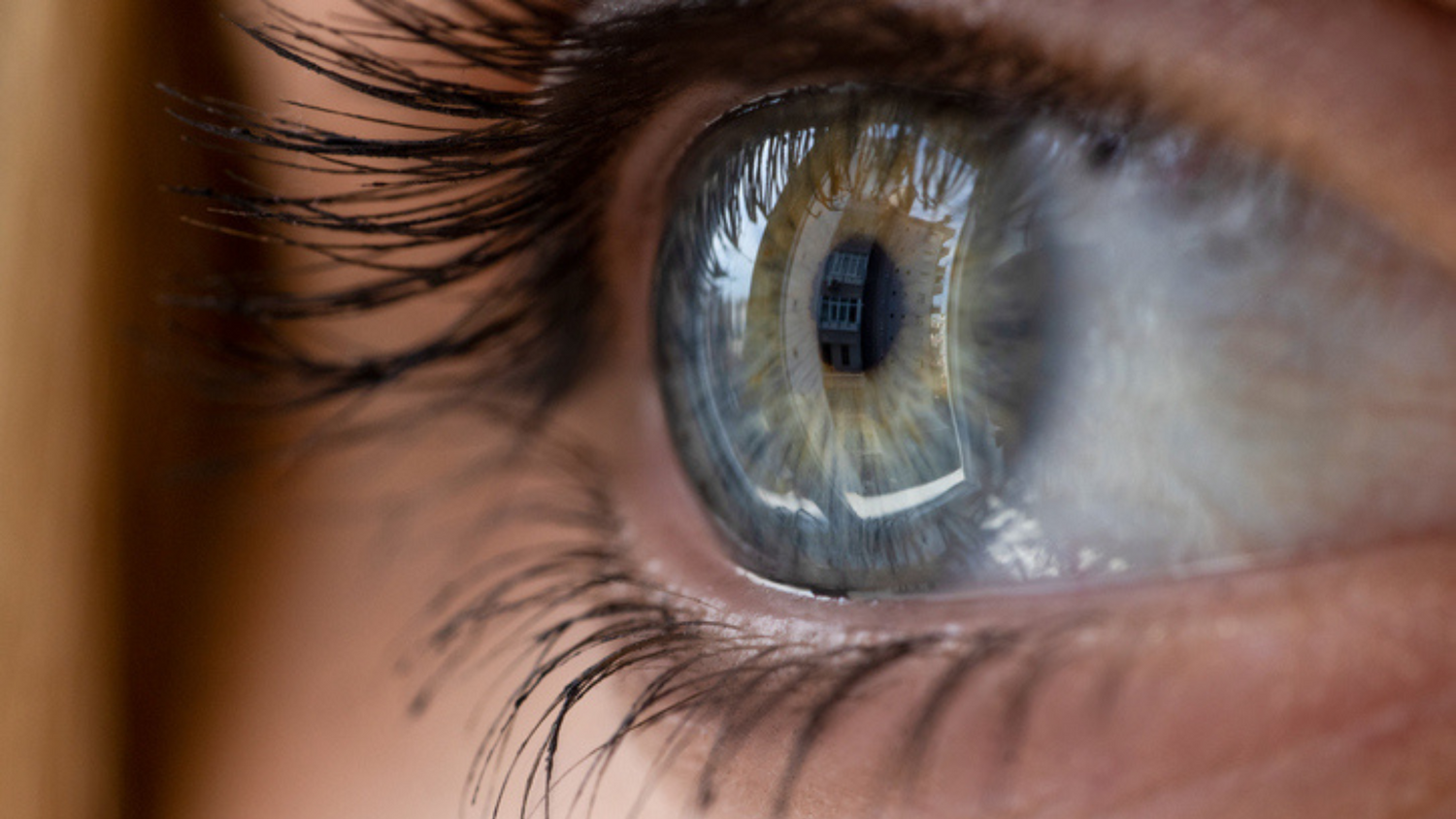Key Takeaways
-
A nutrient-rich diet packed with antioxidants and healthy fats can naturally support better vision.
-
Eye exercises and screen-time habits can reduce digital strain and keep your eyes feeling fresh.
-
Supplements like lutein, zeaxanthin and omega-3s may protect your eyes and slow age-related vision decline.
By the time you hit 60, your eyes need around three times more light to see well than they did in your 20s. While that might sound surprising, it highlights just how much your eyes change with time.
The good news? You can support your vision naturally with the right foods, habits, and daily choices. In this guide, you’ll discover how to nourish and protect your eyes—without relying solely on glasses or screen filters.
Why Our Vision Changes as We Age
As you age, it’s normal for your vision to shift—but understanding why can help you protect your eyesight.

Over time, your eye’s natural lens becomes less flexible and more prone to clouding, which contributes to conditions like presbyopia (difficulty focusing on close objects) and cataracts. Tear production may also decline, leaving your eyes feeling dry and tired. Combined with oxidative stress and years of exposure to screens and sunlight, it’s easy to see why changes happen.
Macular degeneration, a common age-related condition, is another major concern. It affects the central part of the retina responsible for sharp vision. Interestingly, eye health is often a window into your overall health, giving clues about inflammation, blood sugar levels, and even cardiovascular health (R).
Eat With Your Eyes in Mind – Vision-Loving Nutrients
You’ve probably heard that carrots are good for your eyes—and they are—but that’s just scratching the surface.
Several nutrients have been scientifically linked to better vision. Vitamin A (found in carrots, sweet potato, and kale) supports the retina and prevents night blindness. Lutein and zeaxanthin, found in leafy greens like spinach and silverbeet, act as natural filters for blue light and help prevent macular degeneration (R).
Omega-3 fatty acids—especially DHA, found in fish and algae—are essential for retinal health and may reduce the risk of dry eyes and age-related vision decline (R). Meanwhile, zinc, vitamin C, and vitamin E all work as antioxidants to protect delicate eye tissues from oxidative damage (R).
Try this Vision Support Smoothie:

Ingredients:
🥭 1 handful of spinach
🥭 ½ mango
🥭 1 tsp chia seeds
🥭 1 kiwi
🥭 1 cup almond milk
Blend and enjoy a delicious dose of eye-friendly nutrients!
Simple Daily Habits to Relax and Strengthen Your Eyes
Just like any muscle, your eyes thrive on gentle movement, rest, and recovery.
One of the simplest ways to protect your vision is to follow the 20-20-20 rule: every 20 minutes, look at something 20 feet away for 20 seconds. This helps reset your focus and ease strain from screen use.
Other gentle practices include blinking exercises to keep your eyes hydrated and palming (rubbing your hands together and gently covering your eyes) to relax eye muscles. Switching between near and far focus also trains the eyes to maintain flexibility—a skill that naturally declines with age.
These habits may seem small, but they’re surprisingly effective at reducing digital eye strain and improving comfort throughout the day.
Soak Up the Sun (Safely!) – Why Natural Light Matters
Spending time outdoors is good for your mood—and great for your eyes.
Natural sunlight helps regulate your circadian rhythm, improving sleep quality, energy, and even tear production. It’s also protective against myopia (short-sightedness), which is on the rise in both children and adults due to indoor lifestyles and excessive screen use.
That said, UV exposure can damage the eye’s lens and retina over time, increasing the risk of cataracts and macular degeneration. That’s why UV-protective sunglasses are essential—especially in Australia, where UV radiation levels are among the highest in the world (R).
A healthy dose of morning or late afternoon light (without looking directly at the sun) can offer all the benefits without the risk.

Habits to Rethink for Happier Eyes
You might already be doing plenty right—but refining a few everyday habits can make a big difference.
Smoking is one of the leading modifiable risk factors for macular degeneration and cataracts. Similarly, rubbing your eyes, sleeping in makeup, or skipping nightly cleansing can irritate and damage delicate eye tissues (R).
And then there’s sleep. Poor or insufficient sleep reduces your body’s ability to repair and lubricate your eyes overnight, leading to dryness, redness, and fatigue during the day.
The good news? Small changes—like washing your face before bed, getting 7–9 hours of rest, and being mindful with screen use—can go a long way in supporting long-term vision.
Supplements That May Help You See the Future Clearly
If your diet isn’t always perfect (and whose is?), supplements can help fill the gaps and support your eye health.
Here’s what the research says:
- Lutein & Zeaxanthin: Protect the macula and improve visual performance (R).
- Astaxanthin: A red pigment with strong antioxidant activity, shown to reduce eye fatigue and oxidative stress (R).
- Bilberry Extract: May support night vision and circulation to the retina (R).
- Omega-3 Fatty Acids (especially DHA): Maintain the structure of photoreceptors in the retina (R).
- Zinc: Helps transport vitamin A and supports night vision (R).
- Resveratrol: A powerful antioxidant found in red grapes and berries that may protect against retinal damage and age-related eye diseases like AMD (R).
Always opt for third-party tested supplements, and check in with a qualified health professional before starting anything new.
Quick Q&A – Common Eye Health Questions, Answered
You’ve got questions—we’ve got gentle, science-backed answers.
Can eyesight improve naturally?
Yes, some aspects of vision—like eye strain and dry eyes—can improve with nutrition and habit changes. Structural issues may not be reversed, but progression can often be slowed.
Are blue light glasses effective?
They can be, especially if you spend hours on screens. Early research shows promise for reducing eye strain and improving sleep quality (R).
What signs should I watch for?
Blurry vision, dry or red eyes, trouble seeing at night, and frequent headaches are all worth mentioning to your optometrist. Early care leads to better outcomes—so don’t ignore the signs.
Your eyes are your window to the world—taking care of them doesn’t have to be complicated. Whether it’s adding a handful of spinach to your breakfast, stepping outside to soak up some natural light, or exploring quality eye-supporting supplements, every small action adds up.
Want to learn more? Check out our blog on The Best Supplements for Longevity and keep your health journey going strong.



